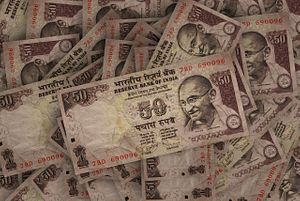The winter session of the Indian parliament saw an interesting unity between the 15 opposition parties in parliament, with the Congress Party at the helm of this club. Together they consistently mounted critique and pressure upon the ruling Bharatiya Janata Party (BJP) and Prime Minister Narendra Modi for the contentious move to demonetize Rs. 500 and Rs. 1,000 notes on November 8.
This week, however, saw two significant updates.
First, the Supreme Court, which had looked into the petitions against the move and demanded a notification from the government justifying it, transferred the petitions to a five-member constitutional panel. The court declared that it would not interfere in the government’s decision, although it did insist that the policy of allowing withdrawals worth Rs. 24,000 per week be strictly enforced.
Second, the Congress Party’s Rahul Gandhi’s meeting with Narendra Modi on December 16 threw a spanner in the works for the carefully built unity within the opposition. All 16 parties were set to meet President Pranab Mukherjee for discussion on demonetization later in December; Rahul Gandhi’s meeting with Modi proved to be cause for discord. Several parties pulled out of the meeting in protest, and even within the Congress Party there was disagreement on the timing of this meeting.
The arguments against the demonetization, made by the opposition, point to the lack of preparedness of the government to tackle the inevitable paucity of currency notes, the delays in printing and disbursing an adequate number of the new notes, an overestimation of the levels of financial inclusion and digital connectivity, particularly outside urban pockets, and haste in implementation with little concern for the extent of short-term damage to economic transactions.
Modi, along with other ministers within the party, has in turn consistently accused the Congress and other critics within the opposition of supporting corruption by railing against the move. They argue that only those with something to hide or with strong affiliation to corrupt networks would be unwilling to give the demonetization policy the time it needs to fully take shape. BJP ministers make frequent references to corruption scandals that took place in Congress party tenures.
The rhetoric used by both sides has evolved in interesting ways. The opponents began by calling the move unnecessary and ill-thought-out and eventually turned that idea of benefit for the common man on its head, by demanding debt relief for farmers and clinging to the argument that the move is anti-poor. The supporters began by hailing this as a move against monetary fraud and money laundering and are now calling it a brilliant move toward a cashless economy. The “common man” is tossed around in both these strands, which became a regular bone of contention throughout the winter session.
With the fracture of unity within the opposition as the winter session draws to a close, and in the context of the court’s decision to reserve judgment for now, it just became much harder to offer a concentrated takedown of demonetization.
































